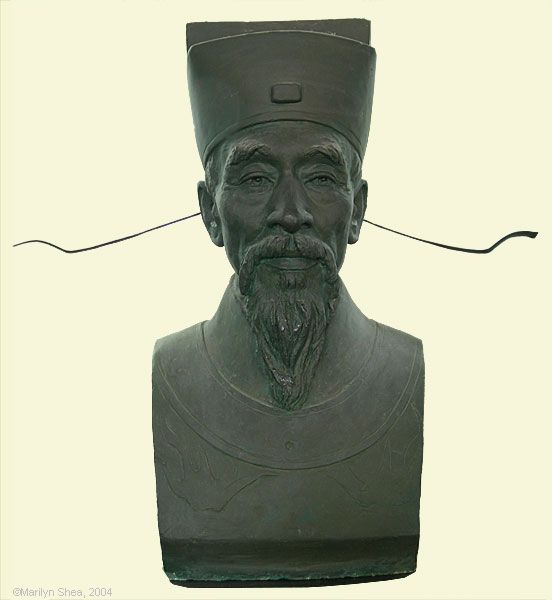 |
| Xú Guāngqǐ was born in Shanghai and having achieved the highest levels in the Imperial examinations focused on astronomy and mathematics. He was one of the scholars of the Imperial academy who studied with Matteo Ricci.
Although he was a mathematician, he was not familiar with and could not compute the higher level interpolations developed by Guo Shoujing or even those of earlier Chinese mathematicians. Scientific and mathematical knowledge had devolved during the Ming Dynasty to the point where little was required for the Imperial examinations. Many of the great works were lost or ignored. In this context, the feats of mathematics brought by Ricci, along with the ability to teach coherently, made the mathematics of Euclid seem like a revelation. Xu Guangqi collaborated with Ricci to translate the first six books of Euclid's Elements in 1607. He worked with Ricci on studies of both hydraulics and geography. He was converted not only to Christianity but to western science and continued to work on the mathematics and astronomy after Ricci's death in 1610. The calendar he and Ricci had been working on successfully predicted an eclipse in 1610 after Ricci's death. In 1629 Xu Guangqi had another chance to prove the effectiveness of the new mathematics and calendar system. A competition was held by the court to see which of three schools could most accurately predict the expected eclipse. Both the traditional Chinese school and the Islamic school joined the competition, but it was Xu Guangqi and what was called the New Method School that won. The emperor appointed Xu Guangqi to reform the calendar. He continued to work with a succession of Jesuits sent with additional materials and instruments. He was succeeded by Li Tangjing, who finished the calendar reform. |
http://hua.umf.maine.edu/China/beijing2.html
Last update: September 2007
© Marilyn Shea, 2007